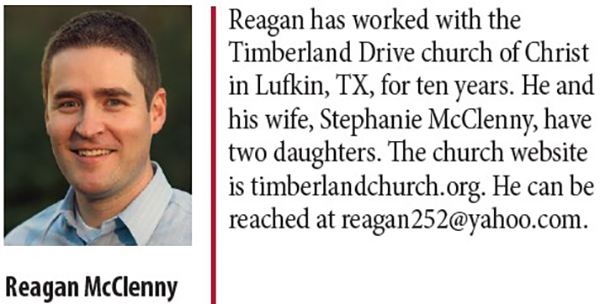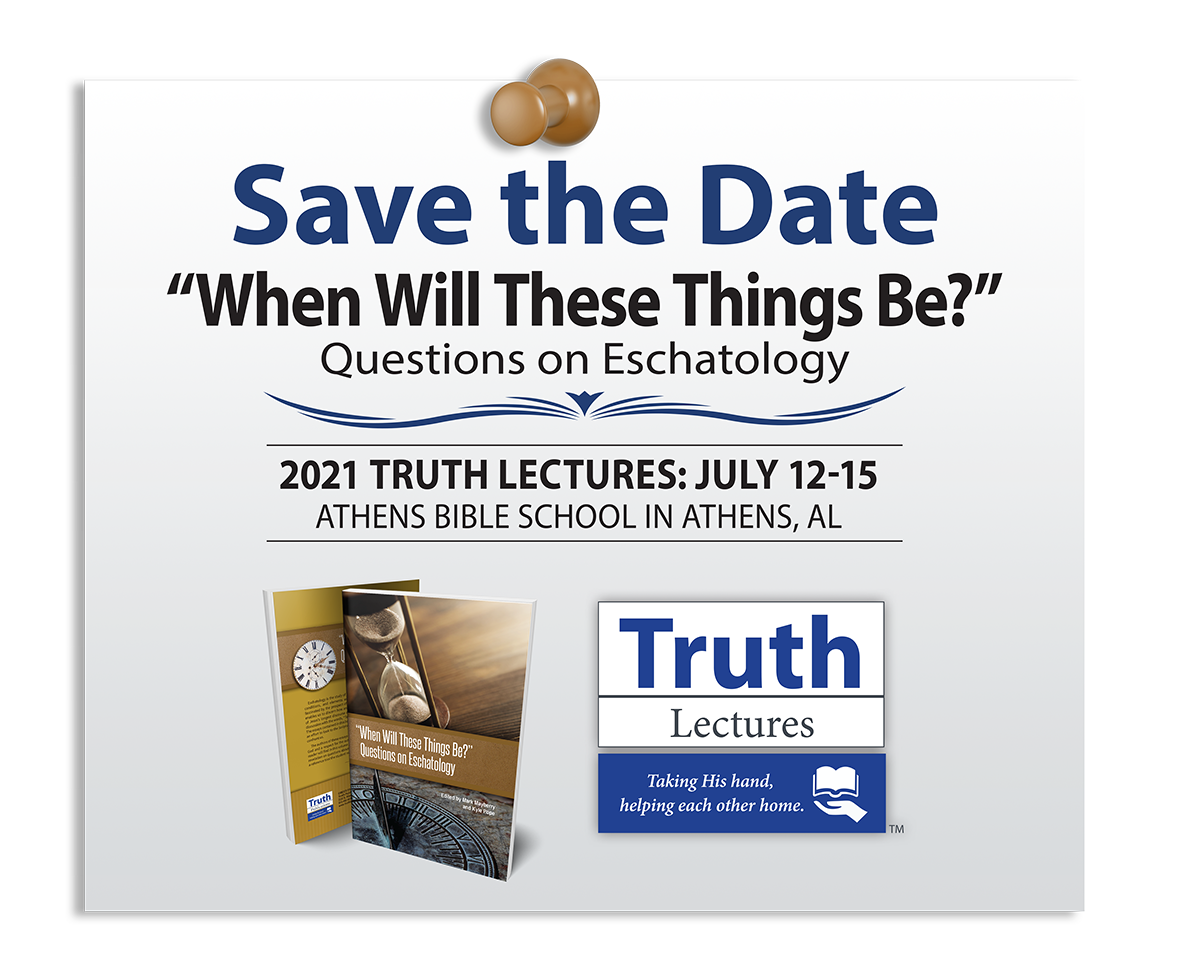by Reagan McClenny
Synopsis: Providence, referring to God’s working through people, events, and times to bring about His purposes, may include the Holy Spirit, but it does not require the Spirit working on us or in us to be still present for us and around us.
“Providence” is the term most often used to refer to the working of God in everyday life. Providence does not require the miraculous or the setting aside of natural law. Instead, God—as an all-powerful, all-knowing, and all-seeing being—works through people, events, and times to bring about His purposes. God uses His foreknowledge and power to bring about His intended circumstances and results, but He does not change the laws of nature or override free-will to do so.
Many influences impact why things happen to us: our free-will, others’ free-will, the devil, time and chance, and the Godhead. Providence refers to God working through all of these influencers to bring about His purposes. How He does it, I do not know—but I believe that He does!
From our perspective, we cannot “see” God’s providential work until after the fact, using hindsight. Even then, we cannot be certain God was the one working unless He reveals that to us. Since we are discussing the power and person and working of God, we must exercise caution. Finite creatures cannot comprehend the infinite Creator—One who is omniscient, omnipotent, and omnipresent. However, God gives us insight into what our response to and attitude toward providence should be. Let’s allow the Scriptures to define this concept further in terms we can understand.
God’s providence is one of the most comforting things about being a Christian! I believe God is living and active all around us. Consider passages like Acts 17:24-28, or Romans 11:36, that says, “For of Him, and through Him, and to Him, are all things, to whom be glory forever. Amen.” Hebrews 1:3 affirms that Christ upholds or sustains “all things by the word of His power.” The Bible does not teach a Deistic view that God “started” the universe, and now it is just running on its own. God is active in sustaining and influencing it.
Not only that, but the Scriptures also teach that God is actively working in the lives of faithful Christians, specifically! It is a promise we have from Him.
Romans 8:28 says, “We know that all things work together for good to those who love God, to those who are the called according to His purpose.”
God can use anything to accomplish His purposes in our lives. . . including suffering or hardship or testing. Nevertheless, notice two things that are often missed about this verse:
First, this is a promise only to those who “love God”—those who answer the call of His purpose. If you are not right with God, seeking to do His will in love, do not expect this assurance because you do not have this promise.
Second, not that it (always) is good, but it turns out for our good. Sin is still sin. Evil is still evil; yet, God is great enough to use something that is otherwise wrong for our good.
I believe that God is working in the events and happenings all around me to bring about His spiritual good in my life and others’ lives. However, I cannot know for certain how God is working unless He reveals it. Furthermore, it is still up to us whether to accept that working or not.
1 Corinthians 10:13 contains a great example of this concept: “No temptation has overtaken you except such as is common to man; but God is faithful, who will not allow you to be tempted beyond what you are able, but with the temptation will also make the way of escape, that you may be able to bear it.”
Now, we grow in our ability to face and overcome temptation as we grow in faith, knowledge, wisdom, love, etc., but that’s not what this passage addresses. God is not acting on us, but around us—“making” a way of escape (by providence) for us. He isn’t miraculously giving us more strength, but He provides us with a way of escape, knowing exactly how much strength we possess. We then have the free-will to either take that way of escape, or reject it and thus sin.
Consider Joel 2:14, Jonah 3:9, and Esther 4:14. All these passages say, “Who knows?” showing the perspective of faith in God’s action without presuming to know what He will do or has done.
The Book of Esther is one of the best examples in all of Scripture of God’s providence. God is not explicitly mentioned in the book, but His working is everywhere! Think about all of the things that “had to happen” to bring about God’s purposes. Consider the sampling that Nathan Ward provides in his introduction to Esther (see Ward, 100-102):
Vashti must refuse to appear before Ahasuerus
Ahasuerus must demote Vashti to make room for Esther
Esther must be brought into the king’s contest
Hegai must notice Esther and advance her
Ahasuerus must choose Esther
Mordecai must be in the right place to hear about the assassination attempt
Ahasuerus must record Mordecai’s good deed while failing to reward him
Esther must successfully hide her ethnicity
The lot must fall a date late enough in the year to allow the Jews to prepare a defense
Mordecai must convince Esther to put her life on the line
Ahasuerus must accept Esther when she enters unsummoned
Esther must not immediately make her request, allowing for the events of chapter 6
Ahasuerus must have insomnia
Ahasuerus must decide to have the royal records read to him during his insomnia
The section read must be the part that talks about Mordecai
Ahasuerus must decide to reward Mordecai
Haman must appear in the king’s court at the right time
Ahasuerus must speak before allowing Haman to do so, being sufficiently oblique as to allow Haman’s misinterpretation
Haman must misinterpret Ahasuerus to be speaking of him
Ahasuerus must return from the garden at the exact moment Haman is falling on Esther’s couch
Of this list of twenty, what did God actively do? What did He influence by other means? How did He work this out? Who knows?! We can understand that God is working without knowing exactly when or how He is.
Philemon 15-16 illustrates the attitude I believe we should all have as Christians: “For this perhaps is why he was parted from you for a while, that you might have him back forever, no longer as a bondservant but more than a bondservant, as a beloved brother—especially to me, but how much more to you, both in the flesh and in the Lord” (ESV).
“Perhaps” God did this (or time and chance, or even Satan), but whether God actively did or not, I am going to take full advantage of the spiritual opportunity provided by these events!
The Greek word tacha, translated “perhaps” and occurring twice in the New Testament, is “a marker expressing contingency ranging between probability and bare possibility, perhaps, possibly, probably (cf. Rom 5:7; Phile. 15)” (BDAG, 992). If an inspired apostle was so guarded in discussing providence, should we not manifest equal or greater caution when describing the Godhead’s influence in human affairs?
One of the rare exceptions of someone identifying God’s working with certainty is Joseph in Genesis 45:5 and 50:20. Notice, however, that his acknowledgment of God working “for good” in His life was not in the moment (on the way to Egypt or rotting in prison for a crime he did not commit). Joseph continued to have faith, but he did not truly “see” and understand God’s working until he had the benefit of twenty years of hindsight!
We, likewise, probably will not be able to see God’s working in the moment, but we can see and do what is right! We can love God, serve Him, and trust (by faith) that He is working and will bring about the best circumstances for my spiritual good by His providence.
Is the Holy Spirit involved in this work? I would think so. Certainly, both the Holy Spirit and Jesus are “one” with the Father in the purpose of action.
However, when some talk about the “work of the Holy Spirit,” they have in mind something that He does to us, in us, or on us, rather than for us or around us. They believe that the Holy Spirit acts directly on us instead of indirectly through other means. In my study, the Spirit acting directly on us (today) is not demonstrated in Scripture.
Even accepting the case of the Spirit “making intercession” in Romans 8:26-27 as an example of the Holy Spirit working today outside of God’s word (I believe Paul is referring to our “spirit” in this text), it would still be the Spirit doing something for us by taking our pleas to God, not something to us or in us.
“Perhaps” the best response to the specifics of the working of providence, and the Holy Spirit’s involvement in this working, is to echo the attitude of believers in the biblical text: “Who knows?”—but I believe!
Arndt, William, et al. A Greek-English Lexicon of the New Testament and Other Early Christian Literature. Chicago: University of Chicago Press, 2000.
Ward, Nathan. God Unseen: A Theological Introduction to Esther. DeWard Publishing, 2016.


